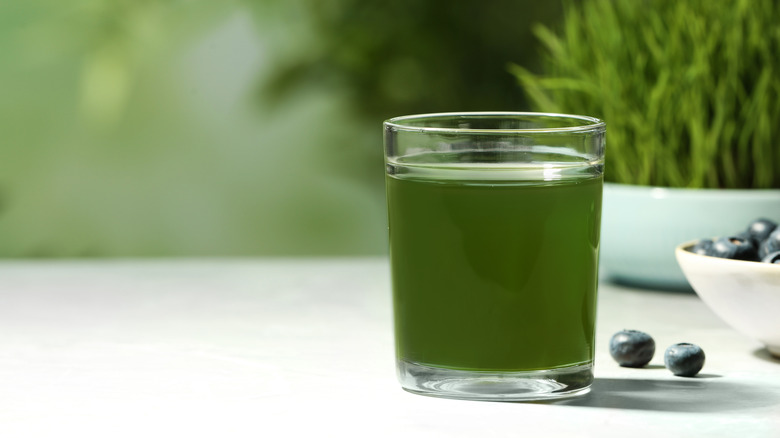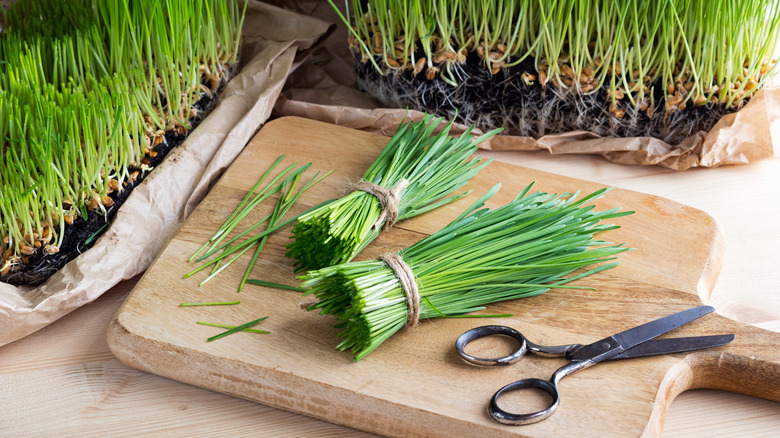What Drinking Wheatgrass Juice Does For Your Body
If you're big into eating superfoods, you may have heard about wheatgrass, the seedling of a wheat plant. Harvested usually around seven days after sprouting, the seedlings contain an array of vitamins and nutrients (via Medical News Today). Wheatgrass has a strong flavor, which is why it is usually added to smoothies or juices.
Wheatgrass gets its superfood status because it contains 17 amino acids, high amounts of iron, magnesium, calcium, antioxidant vitamins C and E, and vitamin A. Antioxidants are critical in preventing the damage done by free radicals, plus research indicates that they might help protect against heart disease, arthritis, and cancer (via Healthline). Full of chlorophyll, wheatgrass has antibiotic properties, which can aid the body in fighting off infection (via WebMD).
In addition, wheatgrass may also help the body fight certain cancers. A 2017 study showed that wheatgrass slowed the growth of oral cancer. Another study suggested that wheatgrass reduced the development of colon cancer and even killed off some of the cancer cells. In studies done on mice, wheatgrass was shown to help fight leukemia.
Wheatgrass may help regulate blood sugar and reduce inflammation
Another potential benefit of wheatgrass is that it may aid in blood sugar regulation. In a study where diabetic rats were given wheatgrass, glucose oxidative enzyme activity decreased, which in turn, lowered their blood sugar (via Toxicology and Industrial Health). Along with having antibiotic properties, wheatgrass serves as an anti-inflammatory due to its chlorophyll content. One test-tube experiment revealed how chlorophyll reduced inflammation in arterial cells (via Journal of Medicinal Food).
If you are new to drinking wheatgrass, you may experience nausea or even a headache after drinking, but these symptoms should go away as you drink it more regularly (via Healthline).
If you are sensitive to wheat or gluten, consult with your physician before drinking wheatgrass as it can cause allergic reactions. Furthermore, if you are pregnant, seek your doctor's advice before drinking raw wheatgrass because there is a chance it may contain mold or other types of bacteria (via SF Gate).


